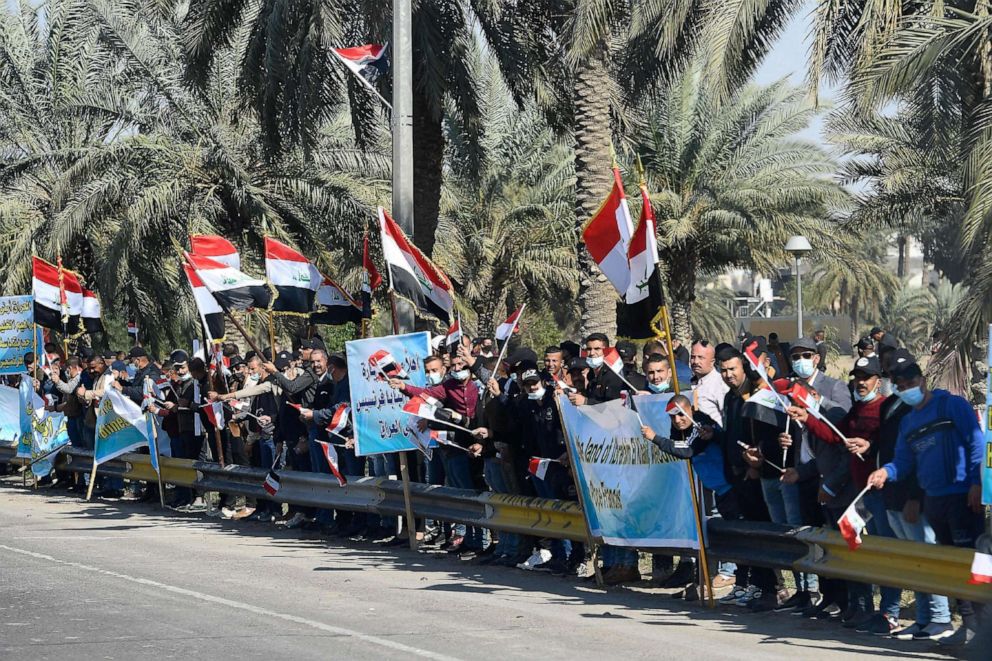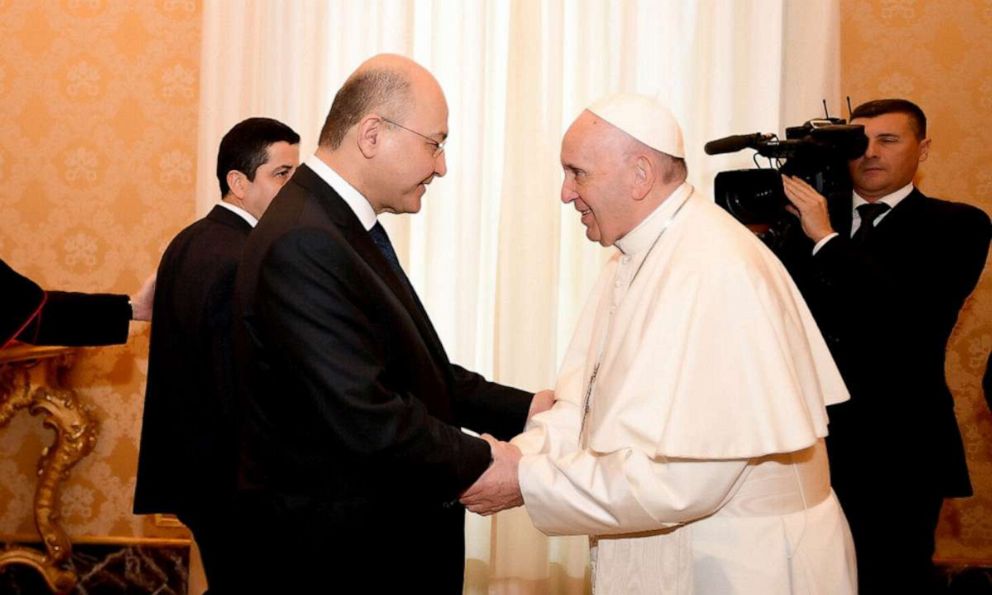Pope Francis brings message of unity and tolerance to Iraq
Pope Francis offered his help to bridge religious divides in the country.
BAGHDAD -- The pope brought his message of peace, reconciliation and tolerance to Iraq on the first day of his papal visit to this predominantly Muslim country.
The pope's jet touched down at Baghdad's airport with the event carried live on Iraqi television. The pope was met by Iraqi Prime Minister Mustafa Al Kadhimi at a small red carpet ceremony. He was greeted by a military band and two children in traditional dress who presented him with flowers, then he quickly departed to the fortified Green Zone for a meeting with officials.
“I am grateful for the opportunity to make this long-awaited Apostolic Visit to the Republic of Iraq and cradle of civilization,” the pope told his hosts.
Increasing violence, including occasional rocket attacks into the Green Zone and a double suicide attack in a Baghdad market in January, raised questions of whether the country was secure enough for such a high-profile visit.
Iraqi President Barham Salih thanked the pope for his determination to go ahead with the visit despite the obstacles of COVID-19 and sectarian violence.
“Overcoming all these circumstances actually doubles the value of your visit in the eyes of Iraqis,” he said.
It was Pope Francis himself who insisted on making the visit to show solidarity with Iraqis, even if most will only see him during live television coverage of events.
Hundreds of Iraqis ignored pleas not to congregate and lined the notorious Airport Road, the location for numerous terror assaults during the American invasion of the country, to catch a glimpse of the pope’s motorcade.

In an address to Iraqi’s top leadership, the pope spoke of the pain from sectarian violence and years of civil war that has left Iraq deeply splintered. He urged all Iraqis to come together and offered his help to bridge religious divides.
“I come as a pilgrim of peace,” he told the Iraqi dignitaries assembled in the Great Hall of the Presidential Palace.
“May the clash of arms be silenced,” he said. “May their spread be curbed here and everywhere. May partisan interests cease.”

The four-day papal visit also comes as Iraq has seen a surge of COVID cases. The Vatican planners insist they have taken all possible precautions to prevent the visit from becoming a super-spreader event. Large crowds are discouraged and social distancing and mask wearing are required.
The pontiff has been outspoken on the social and economic impact of the pandemic and on the need for a fair and equal distribution of vaccines to developing nations.
“My visit is taking place at a time when the world as a whole is trying to emerge from the crisis of the COVID-19 pandemic,” Francis said. “The crisis calls for concerted efforts by all to take necessary steps, including an equitable distribution of vaccines for everyone.”
“But this is not enough,” he continued. “This crisis is above all a summons to rethink our styles of life and the meaning of our existence. It has to do with coming out this time of trial better than we were before.”
The pope, who is foregoing the usual open-air pope mobile for this visit, traveled by armored car to Our Lady of Salvation church in the Karrada district in central Baghdad to pay his respects at the site of suicide bombing terrorist attack. Stopping at a memorial for the 48 victims, Francis called it a “hallowed place” where Christian martyrs “paid the ultimate price of their fidelity.”
“Their deaths are a powerful reminder that inciting war, hateful attitudes, violence or the shedding of blood are incompatible with authentic religious teachings,” the pope told the Catholic clergy present.
The choice of Iraq, the first papal trip in 15 months, is a significant effort on behalf of the Vatican to demonstrate support and encouragement for the persecuted Christian community. But the visit is also an outreach to all of the religious communities in the country to work together after decades of violence. The pope on Saturday meets with leaders of multiple religions at an interfaith ceremony at the birthplace of Abraham.





